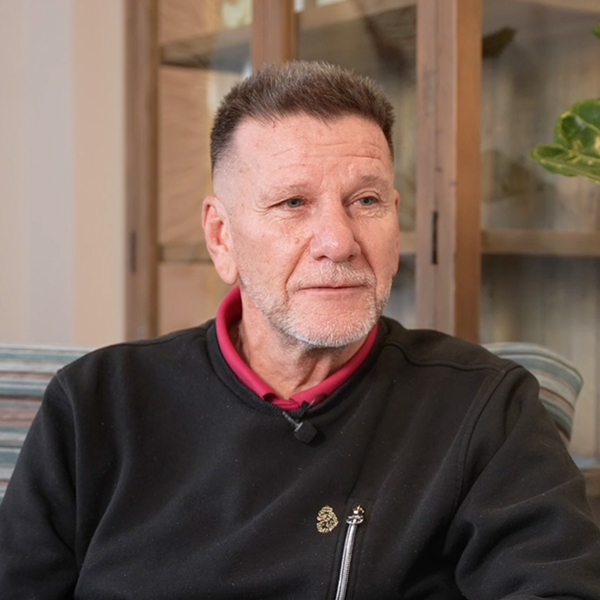
Allan is a retired school head teacher, originally from London but who now lives in Hull. Allan’s wife Teresa died from pancreatic cancer in 2020. During the last year of Teresa’s life, Allan also lost his mum, his dad, and two of his close aunties.
Each of the short films on this page describes common difficult experiences that people encounter with grief. Each one has a short description of the theme and a link to the video itself. The videos contain real people, talking about their own losses; these are not actors. Below you can read a little about each person and about their bereavements. Finally, there are links on each page to the kinds of ideas and practices that we think might be especially helpful with that theme. For each film you can choose to watch with subtitles if you wish by clicking on the “CC” button.

Allan is a retired school head teacher, originally from London but who now lives in Hull. Allan’s wife Teresa died from pancreatic cancer in 2020. During the last year of Teresa’s life, Allan also lost his mum, his dad, and two of his close aunties.
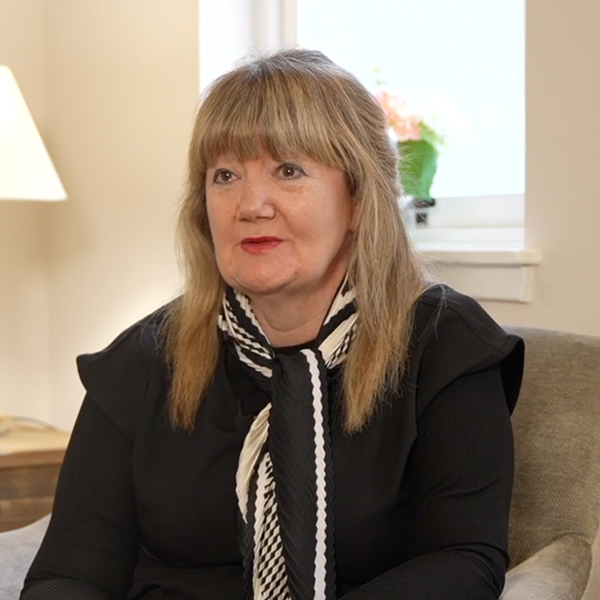
Amanda lives in Edinburgh. Her sister Tracey had a brain haemorrhage in 2020, age 53, and died shortly afterwards. Amanda and Tracey had an extremely close relationship. Tracey’s death was very unexpected.
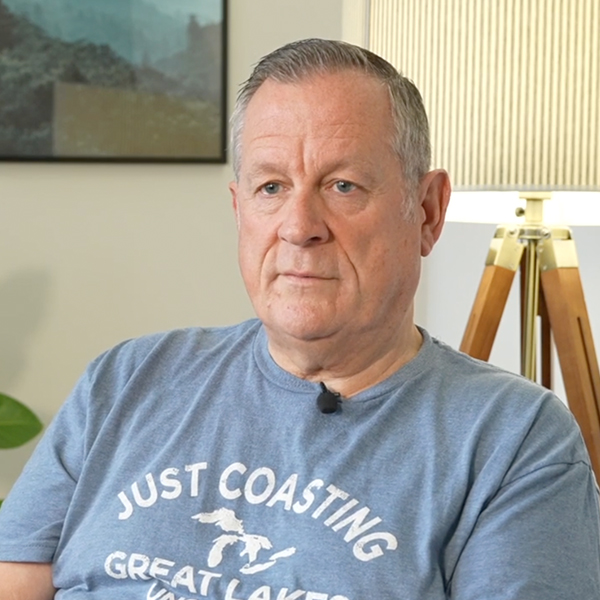
Harry is originally from Northern Ireland but now lives in Linlithgow, West Lothian. He recently retired and lost his son Steven in 2021 aged 36. Steven died suddenly having developed a complicated relationship with alcohol coupled with mental health issues. Steven’s family were aware of his difficulties, but did not think they were serious enough to cause his death.
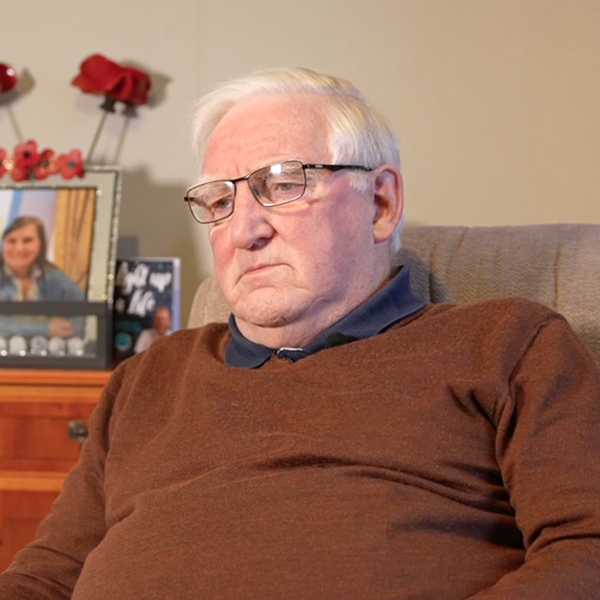
John is retired and from Glasgow. He lost his wife of 40 years, Margaret, in May 2020. Margaret was being treated in hospital for curable stomach cancer, when she unexpectedly developed sepsis and then pneumonia
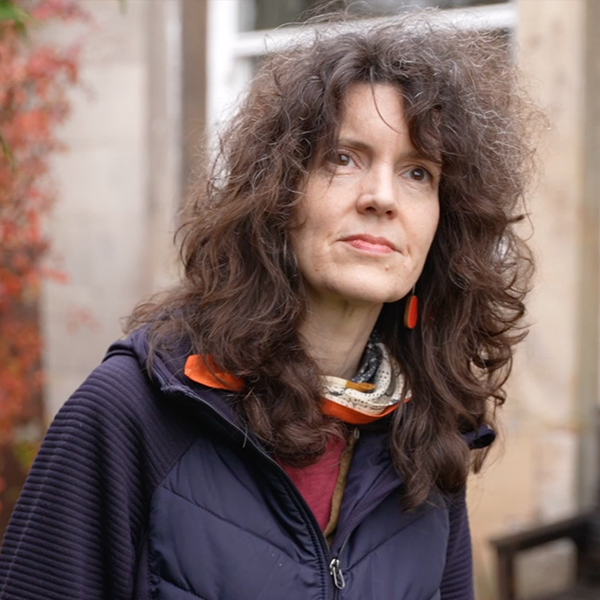
Morag (preferred name Mo) is an artist and lives in Edinburgh with her husband and two children. Over time, Mo suffered the loss of a baby (that they named Eddie), her dad and her mum. Her most recent bereavement was her mum in Aug 2022 through cancer.
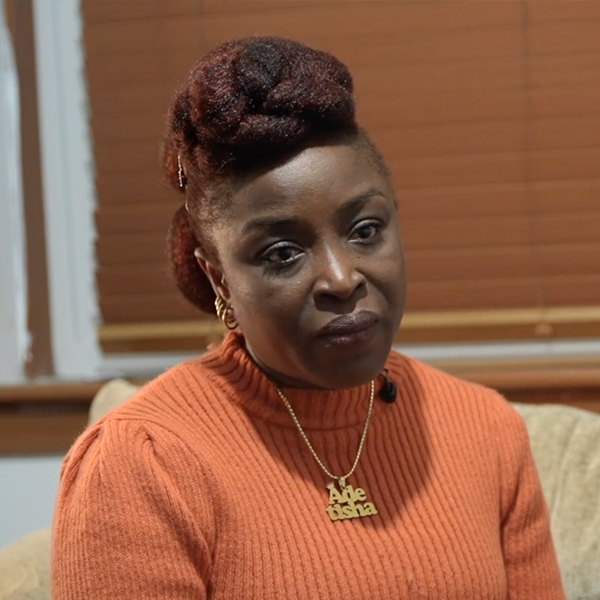
Ade (preferred name Übermom) is the mum of three children and is a teacher who lives in Livingston, West Lothian, but is originally from Lagos, Nigeria. She lost her sister Doja in Aug 2021 from lung cancer at age 44 years.
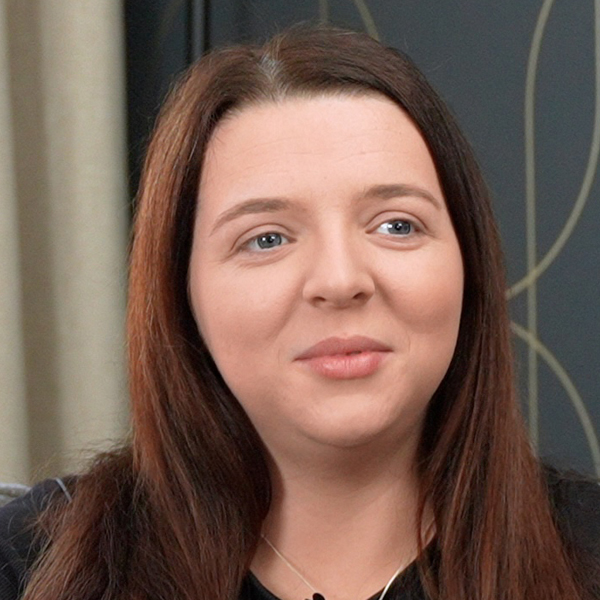
Nicole is in her mid-20s. She and her family received support from Children’s Hospices Across Scotland (CHAS) for many years. This was due to her sister, Erin having a rare life-limiting health condition where the family were told that she would not reach her teens. Despite this limited prognosis, Erin lived for a further ten years. Erin died in 2020 when she was 21 years old and CHAS supported Nicole through her grief journey. Nicole recently graduated from university and is now married and welcomed a new puppy (Luna) into their family. Nicole and her husband are now looking forward to welcoming their first baby boy in September 2025.
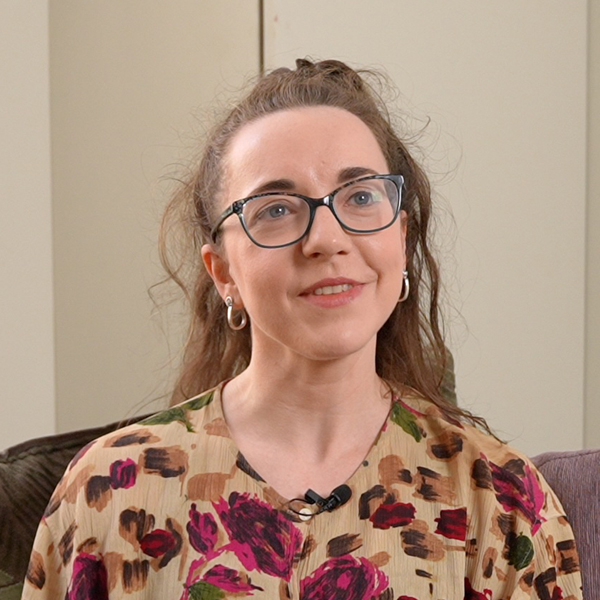
Maeve is in her thirties and is a health professional. Her sister Louise died in 2017 due to cancer. Maeve and Louise had been making plans for travel and adventure, all of which had to be cancelled. Maeve describes the sense of un-realness and dislocation around losing someone out of the natural order. She also reflects on how her practice of meditation has helped, as well as speaking very frankly about loss.
After a loss, people typically describe how painful and overwhelming the feelings can be. These can be emotions such as pain, loss, missing your loved one, feeling lost or alone, sadness, despair, but also other feelings that you might not be expecting, such as regret, guilt, anger, bitterness, or jealousy of people who have not lost a loved one. Other aspects of loss can also be overwhelming. There are often a great many practical things to attend to, such as settling an estate, clearing a house, dealing with belongings. Bereavement can also be very practically disrupting, leading to loss of income, or a need to move house. Hassles and financial worries can add to the sense of overwhelm.
The feelings that come after loss can be so upsetting and overwhelming that we do whatever we can to deal with them. Sometimes this involves different ways that we try to block out emotions, memories or thoughts. This can include things that are not especially unhealthy such as sometimes preferring not to talk about how you are feeling. Sometimes we can get into habits that in the longer term are not likely to be helpful to us, such as never talking about how you are feeling, drinking too much, using drugs or overusing prescribed medication, or just staying busy with work or home tasks. Sometimes the situation that we are in means that in the short term we need a way to shut down overwhelm. However, in the longer term, it's generally not likely to be effective if we don’t learn how to be with our feelings.
One aspect of bereavement that can make it that much harder to deal with is when a death is unexpected or traumatic. These kinds of losses often have a sense of disbelief, or a sense of not being real. Such deaths can break our beliefs about the world as a predictable place, leaving us feeling unsafe, confused or disorientated. Our brains often try to process these experiences by mentally replaying them, trying to make sense of things. You might therefore experience intrusive images, sounds or memories related to the loss. These can happen even if you were not there when your loved one died. Our minds try to make sense by constructing an image of what their death might have been like. These intrusive images and memories can also occur in the form of dreams or nightmares. These intrusive experiences can be frightening and upsetting, so we try to push them away or block them out. Unfortunately, however, this disrupts our ability to process what has happened and can prevent grieving and healing.
More on Intrusive Thoughts.
One aspect that people often find difficult about bereavement is their own or other people’s expectations about it. People say to themselves “I feel like I should be ‘over it’ by now”. Alternatively, they have had this kind of message from other people, or other people have said things like “You shouldn’t be going and visiting the grave as often”, or “You need to move on”. Similarly, sometimes people say, “You shouldn’t bottle it all up, you should talk about how you feel”. We called this website My Grief My Way because grieving can be quite individual. My Grief My Way contains some ideas that we know are generally found to be useful, but each person needs to find their own way with grief. Whilst opening to emotions and gradually reconnecting with life are generally considered to be healthy, the timing and style of those varies considerably. My Grief My Way tries to support you in finding what works for you.
There is really no such thing as a ‘normal’ length of time to grieve. There is also not really a clear end of grieving. We do know however that the passage of time does change grief. Even so – people can be surprised by waves of grief a long time after. In this video our speakers talk about time and change, as well as touching on pre death grieving when you know someone has a life limiting condition.
In the immediate time after a loss, people are often busy and surrounded by other people who will provide forms of support from cooking a meal or having a chat, to doing some kind of activity like going for a walk. In time, however, people usually find that other people return to their usual habits, and support becomes less frequent. For some people, especially if you have experienced a number of losses, this can make your friendship group smaller and can lead to feeling lonely. Being on your own can be an important time of letting yourself grieve. In the longer term though, it can be helpful to connect with other people, or to make new connections.
For many people, the person who they have lost is closely identified with their sense of meaning or purpose in life. As well as handling the loss of the loved person, they also find themselves struggling to come to terms with a changed sense of who they are now, without the person who has died. Sources of meaning and purpose may be disrupted, leading to feelings of purposelessness and thoughts like “There is no point....” Redefining what matters most now is an important task in grieving.
Some people are surprised to learn that bereavement can have physical impacts upon your body and your health. These can include disturbances of sleep and appetite.
In this film, our volunteers talk about the things that they have found helpful in the process of grieving. Many of these things link to the core themes of My Grief My Way, including ideas such as ‘Continuing Bonds’, and the skills of ‘Open’, ‘Aware’ and ‘Engaged’.